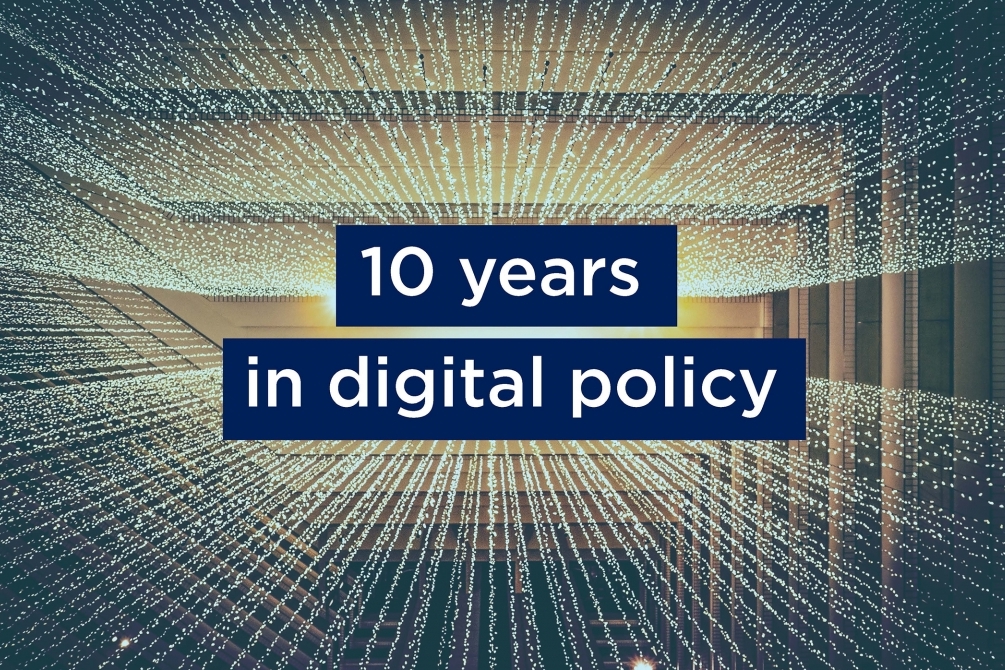The potential of data analytics extends well beyond sporting achievements increasingly impacting more facets of our lives. For businesses small and large, advanced analytics can promote efficiencies, growth, and competitiveness. Regardless of budget constraints, ubiquitous data allows business to continuously measure performance and take steps to improve. Meanwhile, for individuals, data allows us to better monitor our health, wealth, consumption patterns, and simply better understand the world around us.
As Europe gears up for the digital age, data is the primary feedstock of the digitised economy. For this, free data flows across the globe will be essential. Considering that the US is the largest supplier of digitally-enabled services for Europe and vice versa, it will be through a strong transatlantic digital partnership that we will ensure the development and stability of businesses actors across the board.
The boundless potential of data
As of now, global data flows contribute more to world-wide growth than global trade in goods. By the end of 2021, around 60% of the world’s GDP will be digitalised. Data is becoming increasingly essential for doing business, a pattern observed in particular for small and medium-sized enterprises(SMEs). They currently make up 99% of all business in the EU and contribute to half of the Union’s total GDP; data-reliant manufacturing SMEs alone are worth EUR 280 billion in the EU. If such data flows are restricted, corresponding exports could fall by EUR 14 billion, while – if encouraged – we could see them grow by EUR 8 billion.
But this is just the tip of the iceberg. Data can help firms to better understand consumers and produce targeted content. It can be harnessed to boost employee retention, satisfaction and efficiency. Through predictive modelling, data analytics can also accelerate supply chain management and improve operational capacity at limited added cost. Perhaps most importantly, it can help businesses, researchers, and public sector bodies, collaborating together, address common societal challenges such as climate change and public health.
There are even more concrete emerging use-cases of data-fuelled technologies: artificial intelligence in healthcare to screen for illnesses and model the impacts of treatments; Internet of Things (IoT) increasingly enabling machines on factory floors to interact with each other through data; autonomous vehicles communicating with integrated transport systems to get passengers from A to B in the safest, most energy-efficient way.
We are truly entering the digital decade – but to fully immerse ourselves in this new age we need one more ingredient: trust. Trust in data integrity and the principles of data protection enshrined in the EU’s General Data Protection Regulation (GDPR).
The EU and the US jointly produce 75% of the world's digital content and share 55% more data flows via transatlantic cables than over transpacific routes
Unlocking the ‘fifth freedom’
In Europe, the digital decade strategy must place preserving the free flow of data at its heart – a glance at the transatlantic digital relationship highlights this clearly - the two regions already jointly produce 75% of the world’s digital content and share 55% more data flows via their cables than over transpacific routes. But work remains to be done.
Transatlantic cooperation can harness the power of data to promote growth, innovation and trade. But we must refrain from protectionist mindsets and wariness towards the free flow of data, as the opportunity cost of free data flows is lost competitiveness and opportunities for businesses here in Europe. To do this, we must continue to also build trust with citizens by guaranteeing data integrity and safety.
The Trade and Technology Council (TTC) is an apt forum for the EU and the US to collaborate towards openness, market access and common standards based on shared values. Policymakers and stakeholders should focus their efforts on a multilateral approach to data governance, with which we can advance the international data flows that can foster innovation and entrepreneurship, but perhaps more importantly, also the collaboration that is necessary for the benefits to be shared most broadly.
For the EU, the new proposals for a Data Act and the Data Governance Act have the potential to unlock the freedom of movement of data as a fifth freedom within the Union, alongside people, goods, services and capital. Additionally, if we want to maintain trust as a core element, we must continue to work together on a successor agreement to the Privacy Shield data transfer mechanism. As American companies invested in and committed to Europe, we understand the importance of trust in enabling stable and reliable relations with customers, and thus, we stand behind transparent, accountable, and secure use of data.
Just as the Union has benefited from the existing four freedoms, encouraging free and safe data flows can bring our society great digital innovations and vital cross-sector technology. We must allow this resource to fuel our digital transformation, and enhanced transatlantic collaboration provides a important opportunity to do so.




